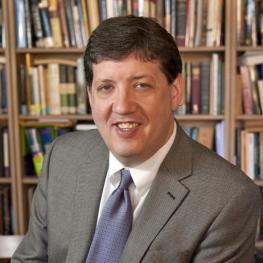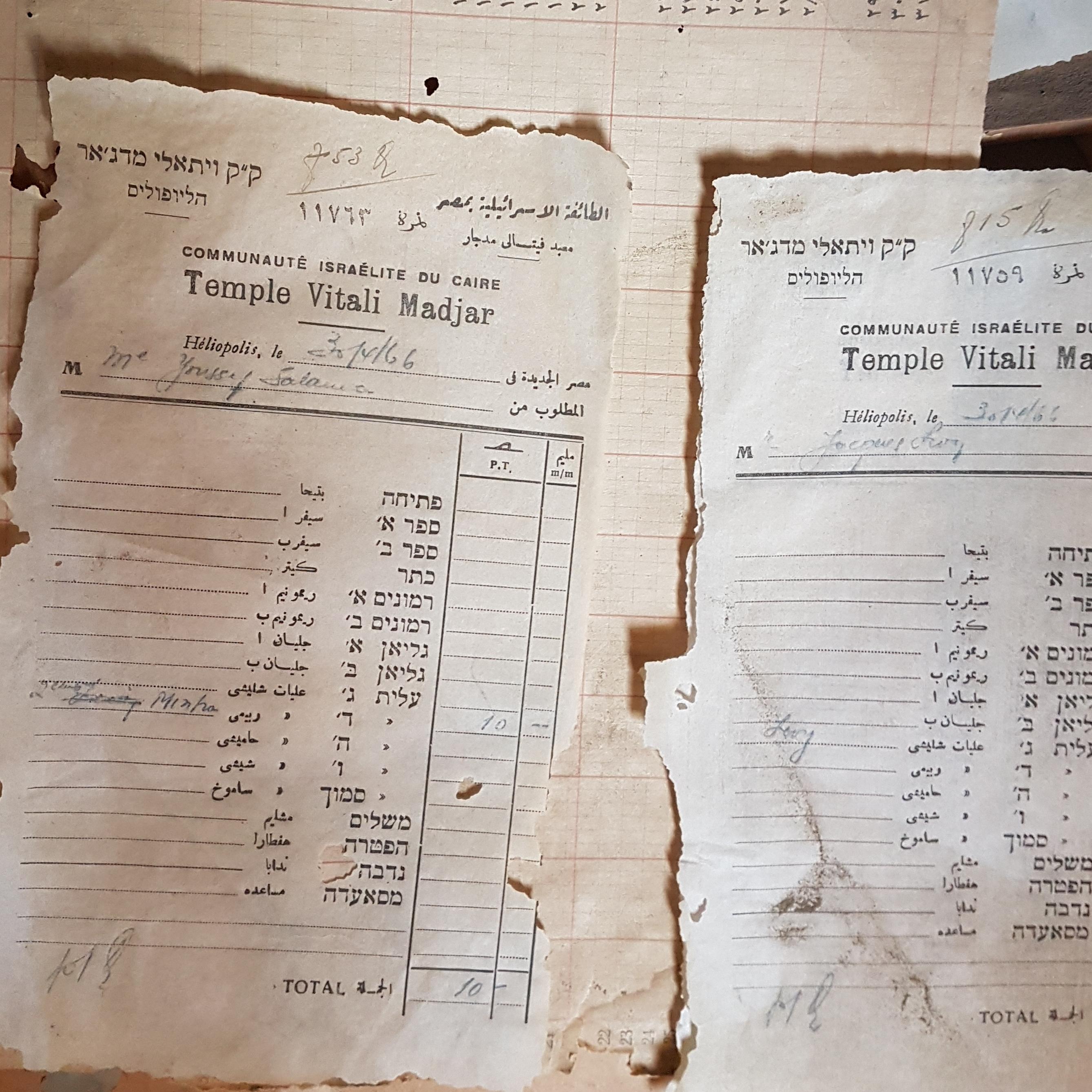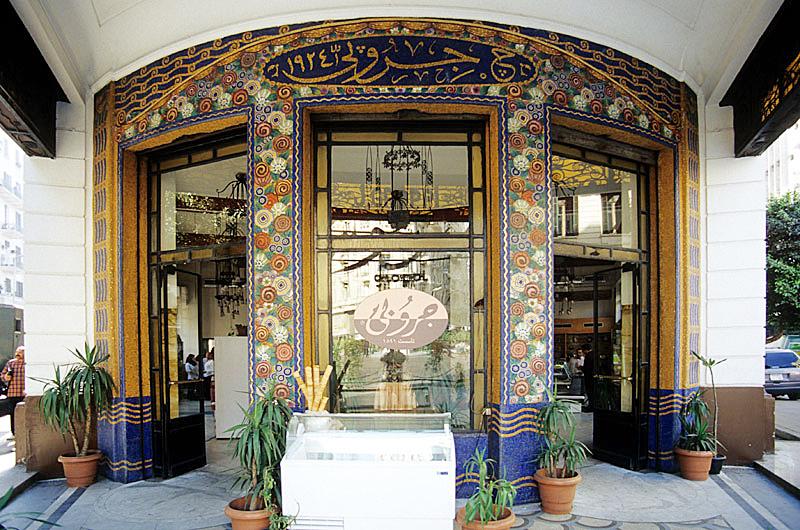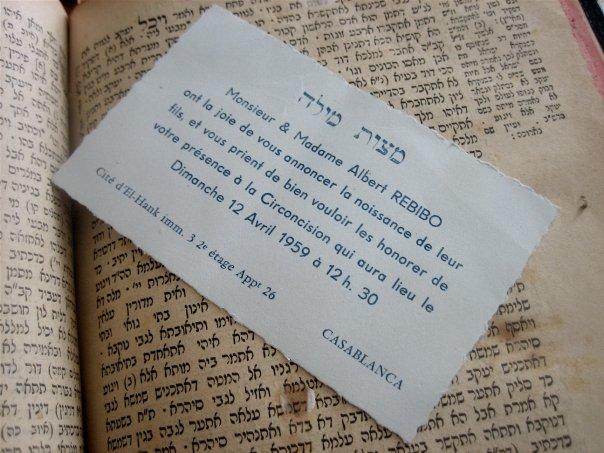Supporting Jewish Studies in Contemporary Arab Contexts
Scholars traveled from Middle Eastern and North African regions to discuss the state of Jewish studies in contemporary Arab contexts
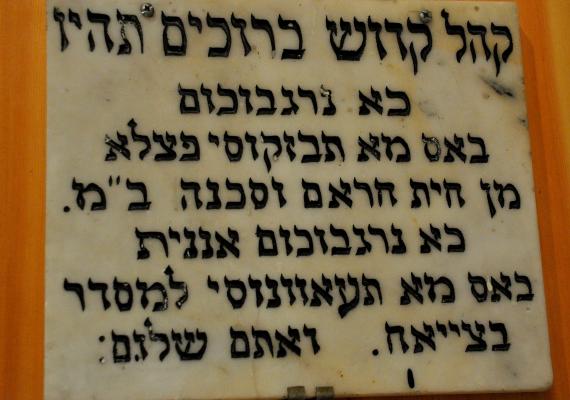
A wall sign advising attendants of a synagogue on what to do during prayer, Moroccan Jewish Museum, Morocco. Image courtesy of Osama Shukir Muhammed Amin
While the Katz Center focuses much of its energy on its annual fellowship, it also supports new research in other more experimental ways, including conferences, institutional partnerships, and other forward-looking initiatives.
As one such effort, the Katz Center organized a conference this past spring on Jewish studies in contemporary Arab contexts. Proposed and co-organized by former Katz Center fellow Yoram Meital, the conference brought scholars of Jewish history, culture, and literature from various Arab countries to the Center to talk about the state of the field in their countries, their own efforts as scholarly pioneers, and the challenges they have faced along the way. Participants included Egyptian, Algerian, Moroccan, Tunisian, and Palestinian scholars, along with North American scholars focused on North Africa and Iraq. One of the aims for the gathering was to lay the groundwork for new scholarly contacts and networking.
The participants were a remarkable group of people that included the first Egyptian scholar to visit Israel after its peace accord with Israel, the first Egyptian graduate student to study in Israel, the founder of the one-and-only Jewish museum in North Africa, a Palestinian scholar with the willingness and ability to use Israeli archival resources for her research, and a representative of the United States Holocaust Memorial Museum focused on promoting Holocaust education in the Arab world, along with scholars who in several cases have had to pursue Jewish studies research in isolation from colleagues in their countries. Most were not Jewish themselves, but rather Muslim scholars who have taken an interest in the Jewish histories of their countries and value Jews as part of their societies’ cultural and religious life.
The conference was several years in the making, and what we did not plan on when we first conceived it was that it would take place at a profoundly difficult time for the Middle East and for Penn, against the backdrop of October 7 and the ensuing war in Gaza. Some scholars could not participate but, to our surprise, most were still willing to attend, recognizing that dialogue and mutual understanding are all the more important in periods of deep antagonism and brutal conflict. The resulting conversations were intense and sometimes painful but honest, warm, trusting, respectful, and eye-opening.
The study of Jewish life in Islamic contexts is not a neglected topic in the field. One of its most important advances is the retrieval of the Cairo Geniza, a so-far inexhaustible resource for understanding Jewish and Muslim life in the medieval Middle East. The Katz Center itself has devoted a fellowship year to the study of Jewish life in modern Islamic contexts, and Professor Meital has just published a landmark study that uses recently discovered sources from surviving synagogues in Cairo to shed new light on modern Jewish history in Egypt: Sacred Places Tell Tales: Jewish Life and Heritage in Modern Cairo (Penn Press, 2024). But much of this research comes from scholars based in Israel, North America, and Europe. Our conference in May was an opportunity to meet and learn from scholars living and working in Arab contexts today. The proved to be an extremely impressive group—innovative, enthusiastic, undaunted by challenges and isolation, intellectually generous, and hopeful despite the hatred and fear that has been unleashed by events in the Middle East. The conference was a rare moment of light in a year of darkness, and it vindicated the Katz Center's collective impulse to be as capacious and globally-minded as possible in its support of new research and fellow scholars.
Our thanks go to Penn's Departments of Religious Studies and Middle Eastern Languages and Cultures, as well as the office of the dean of the School of Arts and Sciences Steve Fluharty for the cosponsorship that made the conference possible.
